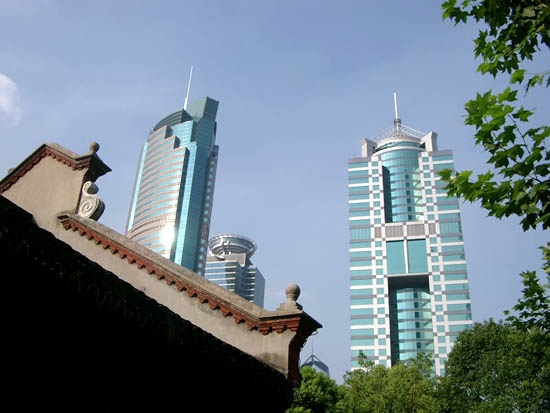China will soon be world's biggest exporter
· US and Germany will be overtaken by
2010
· Beijing must tackle inequality, says OECD
· Beijing must tackle inequality, says OECD

China's explosive rise to economic superpower status was confirmed yesterday by the west's leading thinktank in a new report predicting that it would leapfrog the United States and Germany within five years to become the world's biggest exporter.
Despite growing social strains and international concerns, the Organisation for Economic Cooperation and Development said there would be no let-up in China's breakneck growth.
China is not a member of the OECD - a group of the world's richest developed nations - but the Paris-based organisation published its first report yesterday on a country that has been transformed within a quarter of a century from struggling peasant economy to industrial titan.
If you watch the usual business programs on TV, you won’t believe my favorite him-and-her team on Biz China on CCTV9. They can’t stop smiling. They giggle over what’s happened since the Yuan was revalued [it’s going back up]. They are stuck with good news, every day.
It already accounts for 6% of world exports and its potential to supply the globe with low-cost manufactured goods has caused tensions in the global trading system, exemplified by the recent "bra wars" row. The OECD said China's share was on course to rise to 10% by 2010, by which time it would overtake the US.
Despite 25 years of gross domestic product (GDP) growth at an annual rate of more than 9%, China is not expected to slow in the near future. The thinktank predicted that the world's most populous nation would overtake Britain, France and Italy to become the fourth largest economy within five years.
Hardly a day goes by without new evidence of China's surge up the ranks of the richest economies. This week Ernst & Young released a report predicting it would surpass the US as the world's second largest consumer of luxury goods within 10 years.
The accounting firm forecast 10% to 20% annual growth rates in the sector until 2015, by which time sales are expected to exceed $11.5bn (£6.4bn), or 29% of the world's total, second only to Japan.
------------
The thinktank added that to reduce the gap in incomes, the government should make it easier for people to move from the country to the cities, but urbanisation should also be carefully managed, partly through a reform of the land law.
------------
But the state is no longer the main force for change. The OECD noted that, as a result of "profound shifts in government policies, the private sector is now driving China's remarkable economic growth". Over half of China's GDP was produced by privately controlled enterprises, it added.
The OECD report spends a significant portion of its analysis on what China needs to do to better the lives of its citizens while continuing economic growth. A pretty reasoned package and one for which most countries would shell out a pretty chunk of change.
Posted: Sat - September 17, 2005 at 01:40 PM